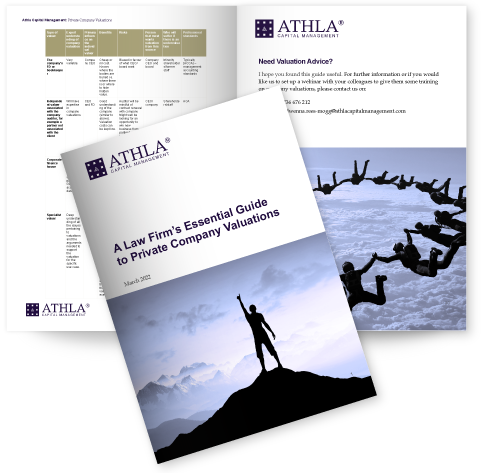Who needs accountants?
April 25, 2023

Does a private company or share valuer really need to be a chartered accountant?
The simple answer is no, with one exception…
Where the articles of a company specifically require a chartered accountant to perform a valuation in a specific scenario.
But even that isn’t mandatory.
In fact there’s no regulatory framework that demands a valuation is prepared by a chartered accountant.
Of course the valuer must be a competent expert, so it’s understandable that people think that the first choice for a valuer is an accountant.
After all, accountants live and breathe the numbers.
However, there’s a long tradition in the US and the UK of people who really understand company and share valuations to establish specialist valuations businesses.
And the real test is whether an insurance company is prepared to offer Professional Indemnity insurance to such a business.
Indeed some accountants will not undertake valuations precisely because it’s a highly specialised activity.
When hiring a valuer, using the client’s existing in-house accountant or audit firm is a logical option, but it is always worth checking whether the individual has the right experience to deal with a valuation, especially if it is a situation that will come across the tax authorities.
What really matters is that the valuation is done in such a way that it cannot be readily challenged without the challenger incurring disproportionate costs such that it is not worth making an attack (and that includes HMRC!)
Of course, issues such as implicit bias and conflicts of interest need to be managed if the in-house accountant or auditor is hired as a valuer.
I mean, can they really be independent such that both sides will be happy?
The use case for the valuation is always an issue when deciding who to hire. Sometimes a company’s articles or shareholders’ agreement will define who the valuer will be under certain circumstances. If the use case is not pertinent to the description in the articles, it is not necessary for the valuer to be a chartered accountant.
And even if it is, what do you do if the chartered accountant valuer is too expensive for the use case?
The answer is to follow due process.
In most cases, if you ensure that the majority of shareholders will accept an expert valuer who is not the one defined, an ordinary resolution should suffice to waive the relevant clause. Sometimes the board has de facto control of the company, in which case a board resolution will do the trick.
Another consideration is whether the valuation will be understandable by a client and its legal advisers. Whilst there is an apparent security in using an accountant to prepare the valuation, using the right methodologies, but it is just as important that the right arguments are used and context applied for the specific use case.
The maths tends to be the easy bit…
Working out a valuation using comparable multiples (and the default – the BDO PCPI index) is pretty simple.
It can get more complicated when discounted cashflow valuations are necessary, but even this, at the end of the day is maths too.
What really matters is that the APPROPRIATE METHODOLOGY is used and an explanation is given about why methodologies that are disregarded have been rejected.
The greatest challenge is finding the context and the arguments to support a valuation.
Consider this imaginary scenario…
A company has received investment at a very high valuation in the last three months. Now there is a need to transfer equity from a founder to a new team member. The new team member is critical to the future success of the business. For the equity transfer to take place, the transaction must be completed at a very low (even de minimis) valuation.
In this case it is necessary not only to prove beyond reasonable doubt that the value of the company has diminished in recent months.
That will or will not be possible, although with the right arguments it can usually be done.
Just as importantly, however, is to make the arguments why the previous valuation should not be applied to the new transaction.
The issue of valuing on the last funding round has crept into valuations because of the prevalence of angel, VC and private equity investments in the UK.
The use of International Private Equity Valuations (IPEV) guidelines has been responsible for this approach. Last funding round valuations however, should be superseded by fair market value valuations under this valuation framework.
Only yesterday I saw this in action in the case of Revolut where Schroders had written down the value of the stake held by Schroders Capital Global Innovation Trust by 46.2% (to £5.44m) compared to the last funding round.
If you need an expert valuer who is independent, on top of what fair market value means, not only for an IPEV valuation, but also in scenarios where the framework is HMRC’s valuations for tax guidelines, you do not need to use a chartered accountancy firm.
Indeed many VCs prepare their valuations in house, so clearly they do not believe that a chartered accountant’s valuation is necessary!
We have a team of expert valuers with professional indemnity insurance in place. None of our valuation reports have yet been challenged by our clients, their legal advisers or HMRC.
We’d be delighted to assist your clients if they need a fast, thorough and clear valuation with strong comprehensive arguments. And we are repeatedly told that our quotes are highly competitive.


